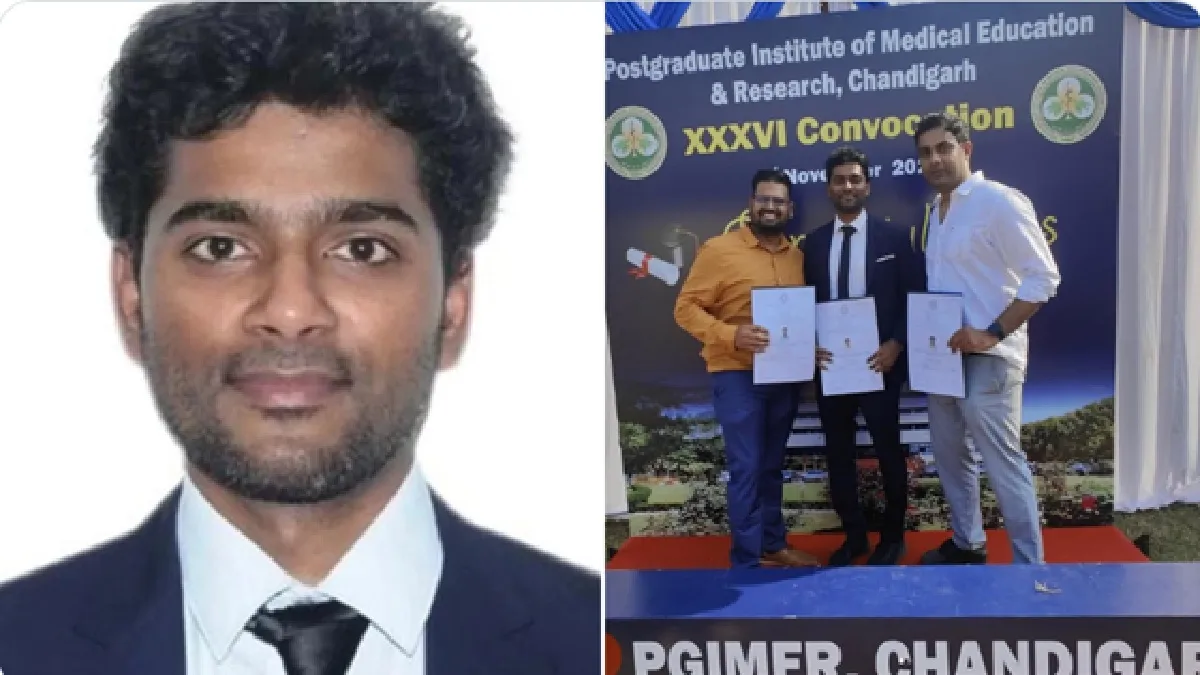- By Raju Kumar
- Sat, 30 Aug 2025 01:17 PM (IST)
- Source:JND
Chennai Heart Doctor Dies: Dr Gradlin Roy, a 39-year-old consultant cardiac surgeon at Saveetha Medical College, Chennai, died of cardiac arrest while doing rounds in the hospital. He collapsed on duty on Wednesday. The sudden death of Dr Roy once again raised concerns about the growing heart-related deaths among the young.
Dr Sudhir Kumar, a Hyderabad-based neurologist, wrote a note on X after Dr Roy's death, flagging concerns over the health of medics.
Dr Kumar, with the caption: When the Healer Falls: A Wake-Up Call for Doctors’ Heart Health, highlighted the issue, saying India has witnessed several young doctors, often in their 30s and 40s, succumbing suddenly to heart attacks. The irony is stark: those who dedicate their lives to saving others’ hearts are often neglecting their own, he added. Dr Kumar listed the factors why the medics are so vulnerable to such diseases.
"When the Healer Falls: A Wake-Up Call for Doctors’ Heart Health💔Yesterday morning brought heartbreaking news. Dr. Gradlin Roy, a 39-year-old cardiac surgeon, collapsed during ward rounds. Colleagues fought valiantly-CPR, urgent angioplasty with stenting, intra-aortic balloon pump, even ECMO. But nothing could reverse the damage from a massive cardiac arrest due to a 100% left main artery blockage. My heartfelt condolences. Om Shanti🙏," his tweet read.
When the Healer Falls: A Wake-Up Call for Doctors’ Heart Health
— Dr Sudhir Kumar MD DM (@hyderabaddoctor) August 28, 2025
💔Yesterday morning brought heartbreaking news.
Dr. Gradlin Roy, a 39-year-old cardiac surgeon, collapsed during ward rounds. Colleagues fought valiantly-CPR, urgent angioplasty with stenting, intra-aortic balloon… pic.twitter.com/cS8ViaYeYv
His tragic death is not an isolated event. In recent years, India has witnessed several young doctors, often in their 30s and 40s, succumbing suddenly to heart attacks. The irony is stark: those who dedicate their lives to saving others’ hearts are often neglecting their own.
Here Is The Full Text Of His X Post
Why Are Doctors More Prone To Heart Attacks?
Multiple risk factors uniquely affect the medical fraternity:
1. Long, erratic working hours → chronic sleep deprivation, circadian rhythm disruption.
2. High stress levels → decision fatigue, constant patient/family pressures, medicolegal worries.
3. Sedentary lifestyle → prolonged standing in the OT or prolonged sitting in the OPD but little aerobic exercise; missed workouts due to on-call duties.
4. Unhealthy eating patterns → irregular meals, hospital canteen food, frequent caffeine.
5. Neglect of preventive care → many doctors postpone their own health check-ups and ignore early warning signs.
6. Psychological burden → burnout, depression, and emotional exhaustion add to cardiovascular risk.
7. Higher incidence of smoking and alcohol abuse
What Should Doctors Do To Safeguard Their Own Hearts?
1. Regular health check-ups: Annual screening for BP, lipids, diabetes, ECG, and stress test when indicated.
2. Prioritise sleep: Aim for at least 7 hours, even if in split cycles, and protect it as seriously as an OT slot.
3. Daily physical activity: Minimum 30 minutes of brisk walking, jogging, or cycling should be non-negotiable.
4. Mindful nutrition: Balanced meals, portion control, cut down on fried foods and excess sugar.
5. Stress management: Yoga, meditation, breathing exercises, or hobbies that recharge mental health.
6. Say no to tobacco and alcohol: Absolute essentials.
7. Build support systems: Peer networks and mental health check-ins to tackle burnout and depression.
8. Listen to your body: Do not ignore chest discomfort, unexplained fatigue, or shortness of breath.
9. Take breaks, go for vacations, spend time with family and friends.
10. Learn to say NO: If you are overworked, learn to say 'No'. Elective surgeries & procedures and OPD conusltations are not urgent- they can be scheduled for a later date.

